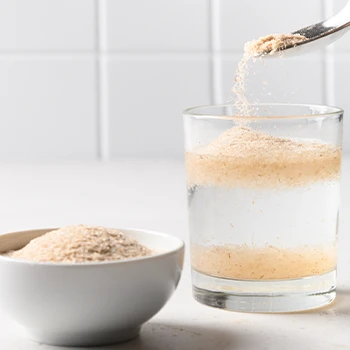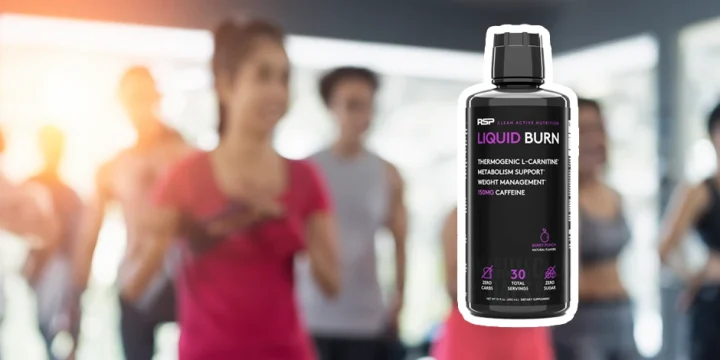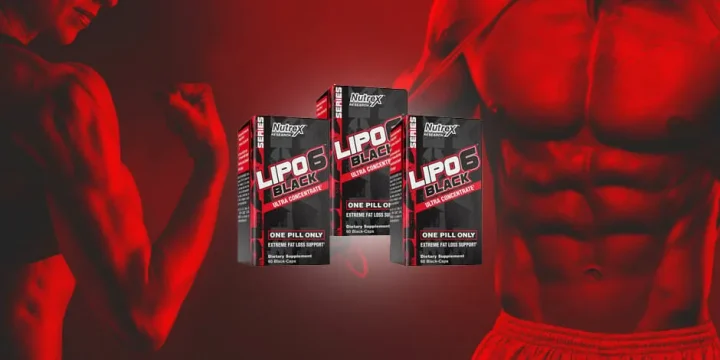Most of my patients have questions about supplements, including if any of them include dangerous ingredients.
A recent conversation about fat burners prompted me to consult my colleague dietician to discuss such questions as: “do they contain too much caffeine?” or “are there any harmful effects?”
If you are considering taking a fat burner and are concerned about their safety, read on.
Quick Summary
- Fat burners, typically containing ingredients like caffeine, green tea, fiber, and CLA, are generally safe for most people but should be used with medical guidance.
- These supplements work by boosting metabolism, reducing fat absorption, and suppressing appetite, contributing to weight management.
- Research published in PubMed indicates that caffeine, a key ingredient in fat burners, can increase resting metabolic rate by as much as 11%, enhancing energy expenditure.
- From a personal perspective, I believe that while fat burners can be beneficial, they should be complemented with a healthy lifestyle for effective and sustainable weight loss.
Fat Burners: Are They Dangerous?

Fat burners are generally safe for healthy individuals.
It's crucial to consult a doctor to understand their effects on existing health conditions and potential interactions with medications.
This article delves into the workings and active ingredients of fat burners to assess their safety.
How They Work
In my experience, fat burners can be effective for increasing metabolism and reducing appetite, but they're not magic pills for instant weight loss.
What they might do, however, is:
- Increase metabolism, so you burn more calories
- Reduce the fat your gut absorbs
- Suppress your appetite, leading to fewer calories consumed and helping you lose weight
None of these mechanisms of action, in and of themselves, is likely to cause any harm to healthy individuals.
But let’s zoom in a bit further to evaluate common ingredients that might be problematic for some.
4 Common Ingredients
Some ingredients commonly found in supplements to help burn fat include the following:
1. Caffeine

Caffeine is the top ingredient in most fat-burning supplements because studies show that it can significantly impact energy expenditure and promote thermogenesis [1]. From what I've observed in my practice, caffeine indeed can do that effectively.
Increased resting metabolic rate (RMR), the number of calories burned while the body is at rest, aids energy expenditure. Caffeine increases RMR by as much as 11%, according to the research published in PubMed [2].
Additionally, studies published in PubMed suggest that caffeine aids fat mobilization from the fat cells. Caffeine is a central nervous system stimulant that directly signals the fat cells to break down fat by increasing adrenaline (epinephrine) [3].
Caffeine is also known to increase blood pressure slightly, or when used in excess amounts, especially for caffeine-sensitive individuals, it might cause dehydration, headaches, stomach upset, or jitteriness [4].
But for healthy individuals, and when used in adequate amounts, it poses no danger whatsoever.
2. Green Tea
Look at many fat burner ingredient labels, and you will likely see green tea extract because it can mobilize fat from the fat cells because of its caffeine and EGCG content. In my clinical experience, green tea extract effectively handles this task.
EGCG is the primary antioxidant found in many teas, particularly green, which can boost the levels of norepinephrine, resulting in increased fat burning [5].
Along with boosting exercise performance, studies published in PubMed support the theory that the extract enhances fat oxidation, particularly during a workout [6].
However, this same beneficial antioxidant can also cause some unwanted effects, especially when consumed in excess. It might contribute to anemia or affect the liver negatively [7].
For these risks and any potential drug interactions, always make sure to consult with your doctor prior to including green tea in your diet.
3. Fiber

From patient feedback, fat burners with soluble fiber like glucomannan can be a stimulant-free option to help with weight loss.
Research published by Harvard Health Publishing suggests that consuming 30 grams of fiber daily is enough to promote weight loss [8].
Fiber increases satiety, and this feeling of fullness will likely reduce calorie intake, especially snacking, which will help you maintain a calorie deficit, the key to inhibiting weight gain and promoting weight loss.
“Like other soluble fibers, glucomannan absorbs water in your stomach and contributes to feelings of fullness. In addition, it may promote reduced calorie intake and weight loss in other ways.”
- Atli Arnarson, BSc & PhD
Although generally safe, glucomannan supplements can sometimes present a choking hazard as they absorb a lot of water, so make sure to keep that in mind when consuming them, according to the Journal of Obesity [9].
4. Conjugated Linoleic Acid (CLA)
In my professional experience, CLA, found in some fat burners, has shown potential in enhancing fat metabolism.
Though many animal studies show promise in CLA’s effect on reducing body fat, the results in human studies are less concrete [10].
The CLA found in supplements is a different form than derived from food intake. A 12-week study published in Nutrition showed decreased adipose tissue and increased lean muscle mass with CLA supplementation [11].
CLA is generally considered safe, but it may be responsible for some digestive issues, so keep that in mind as well [12].
How to Safely Use Fat Burners

The promise of burning fat with all-natural ingredients comes with nearly all weight loss supplements.
As a doctor, I advise considering the safety and dosage of natural ingredients in fat burners, even if they're diet-derived.
Just because ingredients are all-natural and easily obtained through diet doesn’t mean you shouldn’t consider some things before taking them in supplement form:
- Consult your doctor: talk about any underlying health conditions and how the ingredients in the supplement will interact with any medications.
- Take the proper dosage: Don’t assume taking more will lead to more weight and fat loss.
- Purchase from reputable sources: The FDA doesn't regulate supplements like medications. To ensure the safety and quality of any supplement, look for products that come from FDA-approved, GMP-certified facilities that are third-party tested.
In contrast to the dangers of fat burners, natural alternatives and lifestyle changes offer a safer approach to weight loss. Increasing dietary protein and fiber, along with regular exercise, can provide healthier and more sustainable methods for weight management, without the risks associated with unregulated supplements.
Side Effects
As discussed earlier and based on my observations, fat burners can have mild risks.
While green tea extract and caffeine are popular in fat burners for their potential weight loss benefits, they also carry risks such as liver dysfunction, hypertension, and severe side effects at high doses. A balanced examination of these ingredients is crucial to understanding both their advantages and limitations in weight management.
Here’s a list of some side effects of fat burners reported by users:
- Stomach issues
- Diarrhea
- Dry mouth
- Itchiness
- Jitters
- Acne
- Hot flashes
- Nausea
- Vomiting
- Nervousness
FAQs
Do Fat Burners Cause Liver Damage?
Overusing fat burners can cause liver damage, including causing acute liver failure [13]. It is always advisable to consult your doctor to discuss any fat burner supplement ingredients, underlying health conditions, and medication interactions.
Do Fat Burners Affect Your Heart?
Fat burners may affect your heart. Some problematic fat burner ingredients might cause issues like irregular heartbeat or high blood pressure [14]. The FDA does not regulate fat burners, so one of the ways to ensure quality and safety is to purchase from reputable sources.
References:
- https://pubmed.ncbi.nlm.nih.gov/2912010/
- https://pubmed.ncbi.nlm.nih.gov/7486839/
- https://pubmed.ncbi.nlm.nih.gov/8201901/
- https://www.medicalnewstoday.com/articles/271707
- https://www.sciencedirect.com/science/article/abs/pii/S0031938410000703
- https://pubmed.ncbi.nlm.nih.gov/18326618/
- https://www.healthifyme.com/blog/side-effects-of-green-tea/
- https://www.health.harvard.edu/blog/making-one-change-getting-fiber-can-help-weight-loss-201502177721
- https://www.ncbi.nlm.nih.gov/pmc/articles/PMC3892933/
- https://www.healthline.com/nutrition/cla-and-weight-loss
- https://www.sciencedirect.com/science/article/abs/pii/S0899900711003509?via%3Dihub
- https://www.verywellfit.com/does-cla-work-for-weight-loss-90047
- https://www.ncbi.nlm.nih.gov/pmc/articles/PMC3076034/
- https://www.webmd.com/vitamins-and-supplements/what-are-fat-burner-supplements
About The Author
You May Also Like







